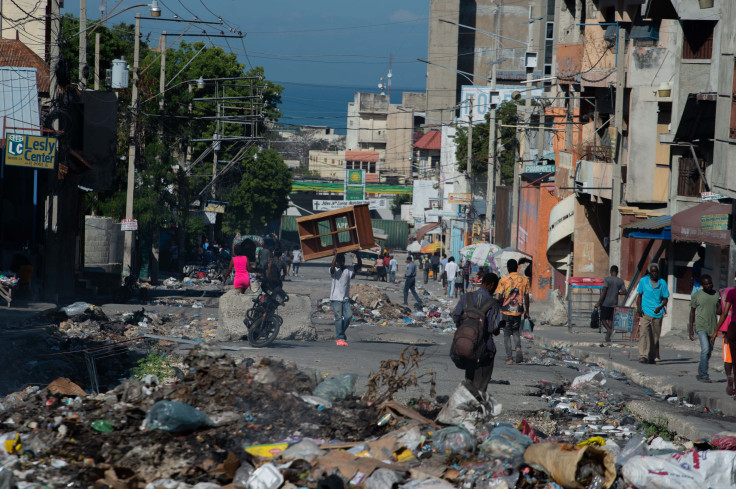
Six months behind schedule, the U.S. Department of State released its 2024 Country Reports on Human Rights Practices last week. In its section on Haiti, the report highlighted a rise in extrajudicial killings by police and warned that gang violence has worsened significantly, spreading into areas previously free from conflict.
As noted in the Miami Herald's coverage, the report details a deepening security crisis implicating both armed gangs and state forces in widespread human rights abuses. It criticized Haitian authorities for failing to protect civilians, attributing much of the unrest to a breakdown in public institutions and law enforcement capacity.
Among the most serious violations cited were unlawful killings, arbitrary detentions, torture and inhumane treatment, severe restrictions on freedom of expression—including violence against journalists—human trafficking, and the continued use of child labor "in some of the worst forms."
The report also condemned the Haitian government for failing to hold perpetrators accountable, stating it had taken no "credible steps or actions" against officials accused of abuses, including unlawful killings.
"Impunity remained a significant problem within the national police force," the report said. "Civil society representatives alleged widespread misconduct among police officers driven largely by poor training and a lack of professionalism."
Drawing on data from the United Nations Integrated Office in Haiti (BINUH), the report noted that in the first quarter of 2024, the police internal affairs office opened 31 cases involving 39 officers accused of human rights violations. None of these cases had been resolved or referred for disciplinary action by the time of reporting.
The State Department also documented credible links between police officers and vigilante killings, some involving victims who had already been taken into custody. It described the vigilante movement as including "mob attacks in which targets were beaten or dismembered before being killed, sometimes by being burned alive."
Gang violence remains a central concern in Haiti. According to BINUH data, 3,884 deaths and injuries were reported between January and June 2024, with 96 percent occurring in the West Department, which includes Port-au-Prince. In 2025, between January and June, the number of victims remained high, with 3,137 people killed in violence involving criminal groups, self-defense groups, civilians, and state security forces.
One of the most disturbing incidents cited occurred in December 2024, when gang leader Micanord "Mikanò" Altès allegedly ordered the massacre of elderly residents in the Wharf Jérémie neighborhood of Cité Soleil. Altès reportedly believed the victims had caused his son's death through Vodou rituals.
Attempts by police and civil society groups to investigate the killings were largely ineffective, as gangs maintained near-total control of the area. Witnesses were reportedly intimidated or killed, and estimates from UN and NGO sources—based on interviews with locals—suggest the death toll ranged from 50 to more than 200. While the Haitian government publicly pledged to pursue justice, the State Department said the case "illustrated the extent to which authorities were unable to protect ordinary citizens from targeted acts of terror."
For the third consecutive year, the State Department singled out Jean-Ernest Muscadin, chief prosecutor in Miragoâne, for publicly endorsing extrajudicial violence. A recent U.N. report stated that between April 1 and June 30 of this year, Muscadin claimed responsibility for the killings of at least 27 people accused of gang involvement. Those deaths were part of 73 extrajudicial or arbitrary executions documented during that period.
Amid the growing crisis, the UN Mission in Haiti emphasized earlier this month the need for a balanced approach to security that prioritizes human rights.
"The report calls on the Haitian government, with the support of the international community, to strengthen the fight against gangs while strictly respecting human rights and standards on the use of force," the UN Mission in Haiti said.
© 2025 Latin Times. All rights reserved. Do not reproduce without permission.





